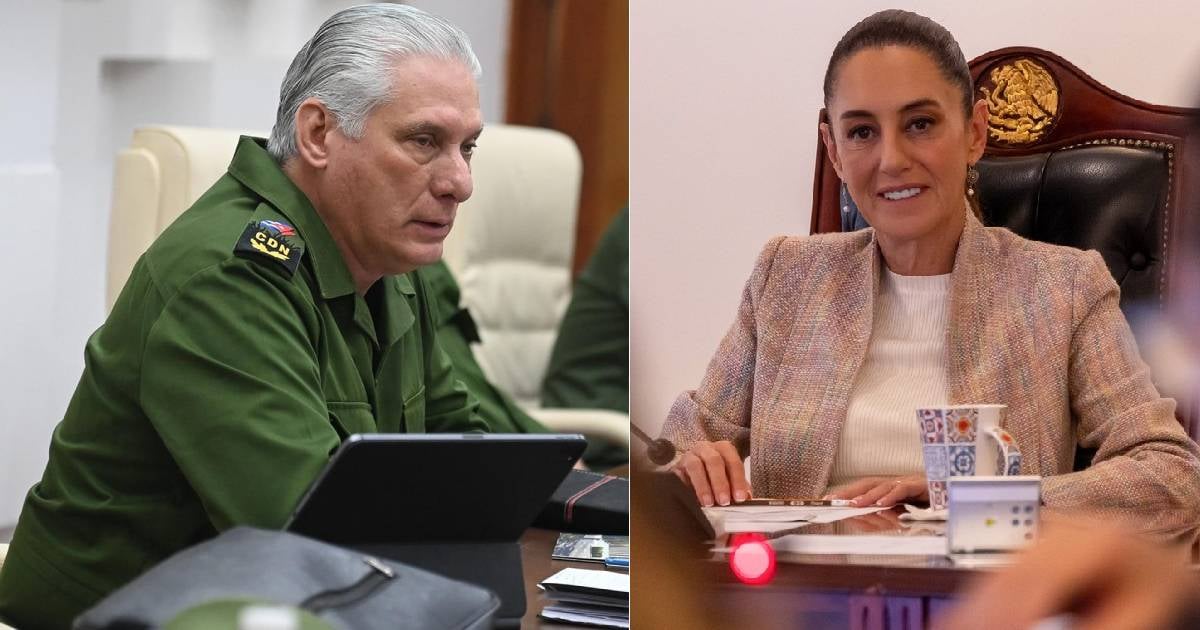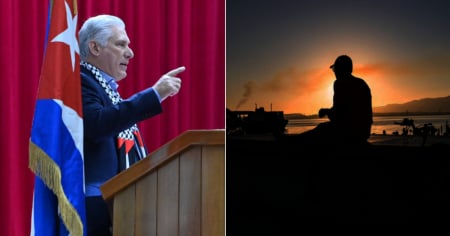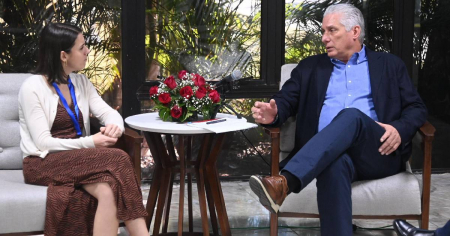
Related videos:
The Cuban leader, Miguel Díaz-Canel, expressed his support for Mexico after the U.S. government announced an increase in tariffs on Mexican products.
Through a message on social media, the one designated by Raúl Castro expressed his solidarity with the Latin American country and criticized the measures imposed by Washington.
“All our solidarity and support to President Claudia Sheinbaum Pardo, her people and government, in the face of the slander from the U.S. government to justify its interfering actions and pressure measures against #Mexico, which harm its sovereignty and threaten regional stability and peace,” said the ruler.
In November 2024, when he was elected president of the United States, Donald Trump announced that one of his first executive orders would be to impose significant tariffs on Mexico, Canada, and China.
Specifically, he proposed a 25% tariff on all imports from Mexico and Canada, arguing that these countries facilitate the transit of drugs and undocumented individuals into the United States.
Furthermore, he indicated that he would impose an additional 10% tariff on products imported from China, justifying the measure by the alleged failure of the Chinese government to stop the trafficking of fentanyl into U.S. territory.
Last Friday, the U.S. president followed through on his threat to impose new tariffs starting February 4. Mexico and Canada have described the decision as a "strategic mistake."
The commercial tensions have raised concerns across various economic sectors, as the imposition of tariffs could adversely affect the economies of the countries involved and disrupt the established trade dynamics in the region.
On his part, Díaz-Canel's statements in support of Claudia Sheinbaum's government are not coincidental, as in recent years, the relationship between Cuba and Mexico has been marked by a series of diplomatic exchanges.
For example, in September 2021, Díaz-Canel was a special guest at the celebrations of Mexico's Independence Day, known as the "Grito de Dolores." This invitation sparked debates in the Mexican press regarding the preferential treatment towards the Cuban leader.
The then Mexican president, Andrés Manuel López Obrador (AMLO), defended the decision, emphasizing the policy of "non-intervention" and "sovereignty" in international relations.
In February 2023, AMLO awarded Díaz-Canel the Order of the Aztec Eagle, the highest distinction that Mexico grants to foreigners. This recognition highlighted Díaz-Canel's work in strengthening the ties of friendship and cooperation between the two countries, particularly in the health sector, with the dispatch of Cuban doctors and nurses during the COVID-19 pandemic.
Cooperation in healthcare deepened in May 2024, when Díaz-Canel met with Zoé Robledo Aburto, the General Director of the Mexican Institute of Social Security (IMSS), to finalize agreements related to the hiring of 1,200 Cuban doctors in Mexico.
In October 2024, Díaz-Canel attended the inauguration of Claudia Sheinbaum as President of Mexico, reaffirming bilateral ties. During his visit, he expressed his interest in further strengthening the relationships and collaborations between both countries.
Cuba also faces sanctions
Despite the support expressed by Miguel Díaz-Canel towards Mexico in light of the new tariffs imposed by the United States, his government is facing significant sanctions from the administration of Donald Trump.
In one of his first actions, Trump reinstated Cuba on the list of state sponsors of terrorism, a decision that entails severe economic sanctions, including financial and trade restrictions.
Díaz-Canel criticized this decision, accusing Trump of acting with "arrogance" and of reinforcing a "cruel economic war" against the island.
Also, last Friday, the United States government reactivated Title III of the Helms-Burton Act, allowing U.S. citizens to file lawsuits for properties seized by the Cuban regime.
Additionally, he expanded the "Cuba Restricted List," adding entities linked to the Cuban military and security apparatus, such as Orbit S.A., which is responsible for processing remittances for the benefit of the Cuban military forces.
Díaz-Canel pointed out that these measures, which impact financial and commercial transactions with Cuban state entities, are "another abuse, wrapped in lies, to justify the criminal blockade of the U.S. government against our people."
Frequently asked questions about Trump's tariffs and Díaz-Canel's response
Why did the United States impose new tariffs on Mexico?
The United States imposed new tariffs on Mexico as part of a strategy by President Donald Trump to curb the flow of drugs and undocumented individuals into his country. Trump justified these measures as a way to protect the security and economic interests of the United States, despite Mexico and other affected countries considering these actions to be a strategic mistake.
What was Miguel Díaz-Canel's response to the new U.S. tariffs on Mexico?
Miguel Díaz-Canel expressed his solidarity with Mexico following the announcement of new tariffs by the U.S. He criticized the U.S. measures, describing them as interventionist and coercive, arguing that they harm Mexico's sovereignty and threaten regional stability and peace. Díaz-Canel also took the opportunity to reiterate his support for Mexico's President, Claudia Sheinbaum.
How does the relationship between Cuba and the United States affect Cuba's reinstatement on the list of state sponsors of terrorism?
The reinstatement of Cuba on the list of state sponsors of terrorism by the U.S. intensifies the conflict between the two countries and entails severe economic sanctions for Cuba. Miguel Díaz-Canel has criticized this decision, accusing Trump of maintaining a "cruel economic war" against the island, and blaming the United States for the precarious economic situation in Cuba.
What measures has Canada taken in response to the tariffs imposed by the United States?
In response to the United States' tariffs, Canada announced the imposition of a 25% tariff on American products. These measures include a tariff on U.S. oil and natural gas, as part of a strategy to counter what they consider an "unjustified attack" by Trump.
Filed under:





